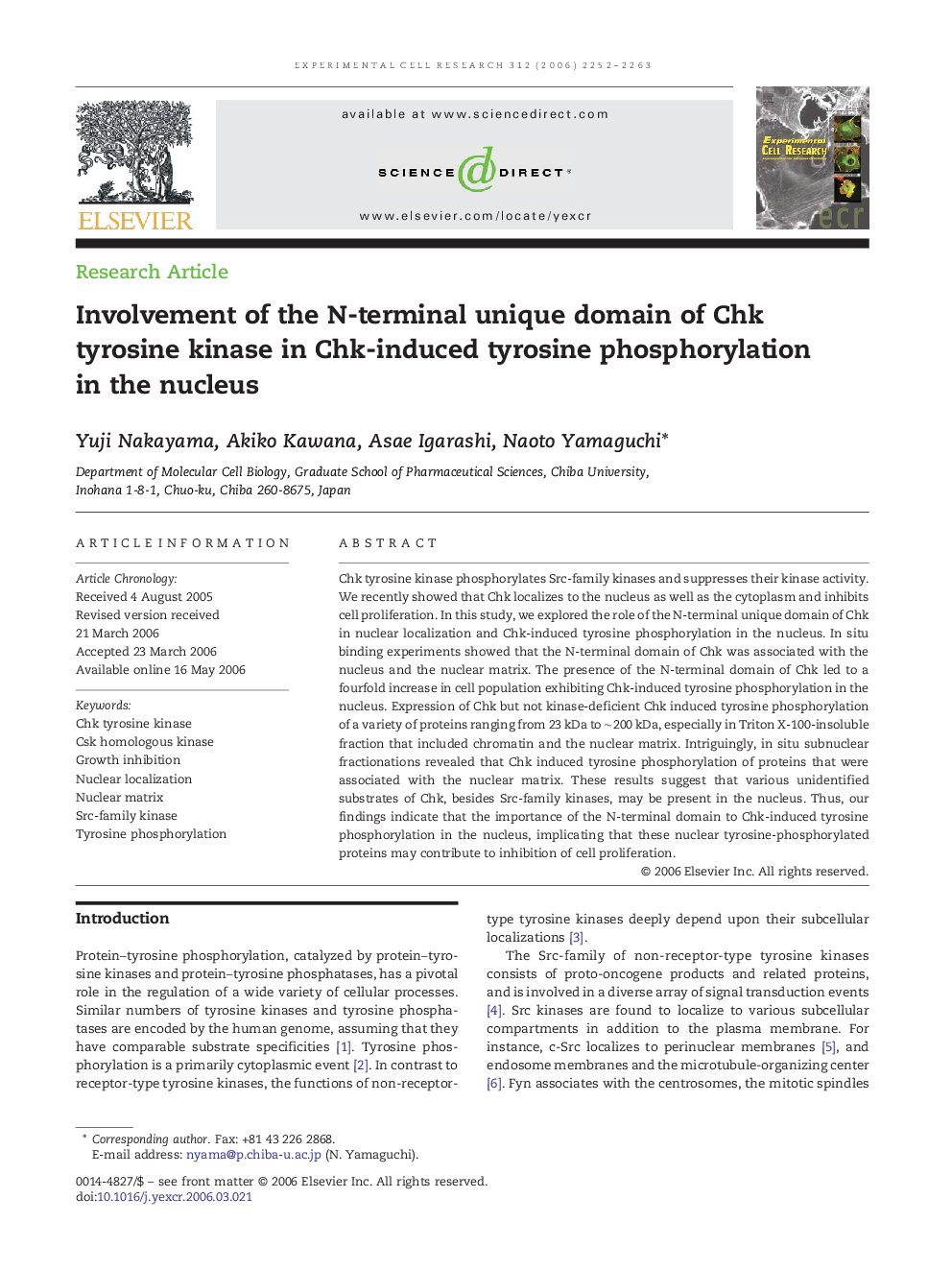| Article ID | Journal | Published Year | Pages | File Type |
|---|---|---|---|---|
| 2132974 | Experimental Cell Research | 2006 | 12 Pages |
Chk tyrosine kinase phosphorylates Src-family kinases and suppresses their kinase activity. We recently showed that Chk localizes to the nucleus as well as the cytoplasm and inhibits cell proliferation. In this study, we explored the role of the N-terminal unique domain of Chk in nuclear localization and Chk-induced tyrosine phosphorylation in the nucleus. In situ binding experiments showed that the N-terminal domain of Chk was associated with the nucleus and the nuclear matrix. The presence of the N-terminal domain of Chk led to a fourfold increase in cell population exhibiting Chk-induced tyrosine phosphorylation in the nucleus. Expression of Chk but not kinase-deficient Chk induced tyrosine phosphorylation of a variety of proteins ranging from 23 kDa to ∼200 kDa, especially in Triton X-100-insoluble fraction that included chromatin and the nuclear matrix. Intriguingly, in situ subnuclear fractionations revealed that Chk induced tyrosine phosphorylation of proteins that were associated with the nuclear matrix. These results suggest that various unidentified substrates of Chk, besides Src-family kinases, may be present in the nucleus. Thus, our findings indicate that the importance of the N-terminal domain to Chk-induced tyrosine phosphorylation in the nucleus, implicating that these nuclear tyrosine-phosphorylated proteins may contribute to inhibition of cell proliferation.
